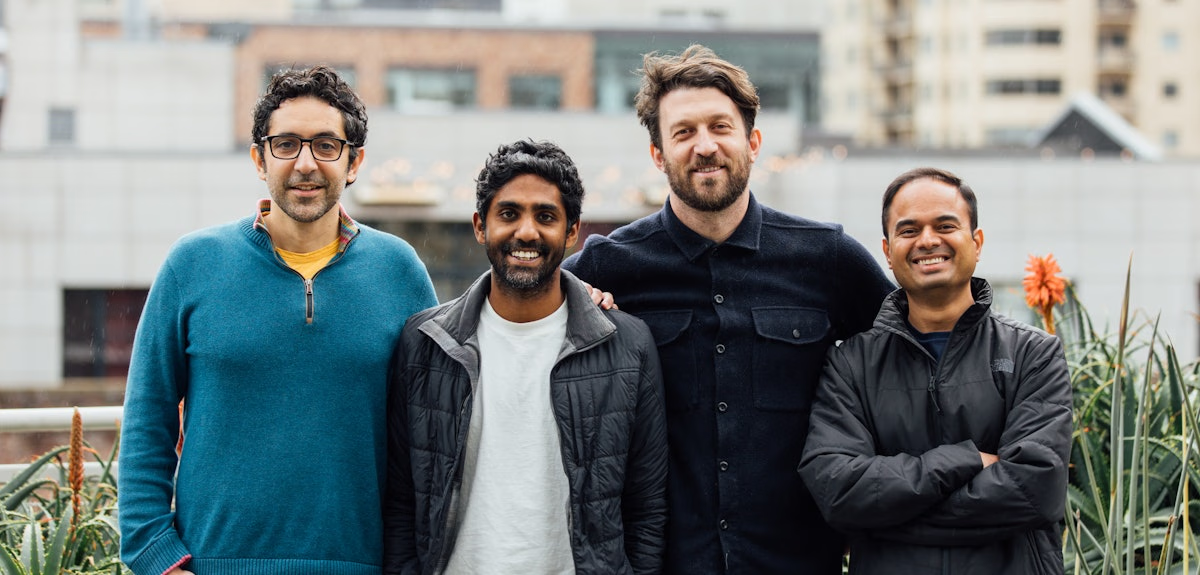
The cofounder question
Mentoring in our Giants program, we get to hear lots of common questions from idea stage founders. One of the biggest is do I need a cofounder, and how do I find someone?
I’ve played beach volleyball for Australia for the last decade. It’s an unusual sport, because it’s one of the only sports where you play in pairs. Not solo. And not in teams.
As the season approaches, the partner dance begins. I’m a defender, so I’m looking for a taller partner to be the blocker. I’m dedicated when it comes to training, so I want someone with the same level of commitment. Obviously, I’d love to play with someone who is better than me. And they also need both the time and money to travel the world and compete (this isn’t a sport where you get paid or make a ton in prize money).
Then, of course, there is chemistry.
Finding a cofounder is a lot like finding a beach volleyball partner. Or a life partner (after all you might spend just as much time with a cofounder as your spouse!)
As part of my role as an investor at Blackbird, I help run and mentor in the Giants program. It’s a free mentoring program for 600+ idea stage founders a year. Over 40% of those founders are actively looking for a cofounder. These are some of the questions they ask our mentors:
Do I need a cofounder?
No.
20% of unicorns (companies valued at $1b+) were started by solo founders.
But there are plenty of reasons that you might want one.
- It’s unlikely you have all the skills you need to build a successful company – can you design a product, build it, market it, sell it, raise money from investors, recruit well, and lead a team? A cofounder can fill some of those skill gaps.
- Being a founder can be very lonely – a cofounder can be someone to share the journey with
- A lot rests on your shoulders as a founder – you may want to distribute that load
Ok, I don’t want to be single. How many cofounders is ideal?
The biggest equity dilution event you’ll ever have in your startup is when you bring on cofounders. The more people you have, the less equity you’ll each end up. But, if each person dramatically increases your odds of succeeding, then that’s a great trade-off (remember, owning 100% of a company that’s worth $0 isn’t the outcome you want).
In the book Super Founders by Ali Tamaseb, he breaks down the number of founders for Unicorn companies. 2 or 3 founders is the most common configuration. This doesn’t mean you need 1-2 cofounders - it’s still going to come down to what works for you, your idea and your team.

Should I develop my idea first, or find a cofounder first?
It depends! There’s no right sequence to these things. Your idea will change many times before you reach product-market fit. With this in mind, if you know who you want to cofound with, start with them as it’s harder to find the right person rather than the right idea. Explore the problem areas that you are both passionate about, and brainstorm solutions to test out together.
If you don’t have a cofounder in mind, then start with an idea as it will help you pull the right partner towards you. Ambitious, interesting and creative ideas attract ambitious, interesting and creative people.
How do I find a cofounder?
This is the million (or billion) dollar question, and for good reason. The best solution is you already have a close friend who has the exact skillset you need and is keen to spend the next decade working on your idea with you.
But I’m guessing if you have that, you probably aren’t reading this blog. Where else might you find someone?
You can try programs where other people are also looking for cofounders. Giants, the Startmate Founders Fellowship and Antler are all examples. These are great as they are filled with people committed to making the leap into startups. It’s a bit like going on a dating TV show – you get an environment where you know everyone is single but you still have to find a match.
You can network like crazy. Tell everyone you know you are looking for a cofounder. Especially tell mentors and advisors. Join entrepreneur groups and Slack channels. Ask for introductions. Drink a thousand coffees. It’s like asking your friends to set you up on dates.
Or you can actively look for people with the skill set you need and reach out to them directly. LinkedIn, Twitter and Discord are your best tools here. Focus your energy on communities that share your passion. If you’ve got a fintech idea then there’s no point in joining a foodtech community!

Do I need a technical cofounder?
Ideally yes.
You can outsource the technical build of your product, but it’s expensive and it’s really hard to iterate your product quickly. In contrast, a technical cofounder can make a change the same day you get feedback from a customer.
There are examples of founding teams with no technical person. What you’ll usually find is that the CTO is their very first hire and works extremely closely with the founders.
I’m thinking about cofounding with my sibling / partner / high school friend / colleague? Is that wise?
You tell me!
If you know them well, respect them, love spending time with them and know they will work hard - go for it.
Just have a think about how it might impact your relationship if things don’t go well with your startup. You don’t want your failed company to be the reason you have a failed marriage or an irreparable rift in your family.
What should we do before we commit to cofounding together?
Just like you wouldn’t jump into marriage without dating, you shouldn’t commit to cofounding without a trial run. Spend several weeks working side-by-side (or screen to screen) together. At the end of it, have a very candid conversation about how you found the experience.
Then, you should do this questionnaire put together by Gloria Lin who ‘dated’ 6 cofounders before committing to one. It’s the 50 most important questions you should discuss together.
How do we split the equity?
The best advice here is to optimise for the relationship with your cofounder, and not for a extra few percentage points of equity.
The biggest two reasons not to split the equity evenly is because one person is putting in a ton of cash, or one person is not going to commit full time.

I’ve already been working on this for months – should I get more equity if my cofounder is only joining now?
Maybe. But most founders tend to overweight the value of their idea and their early time.
Here’s how I think about it. Let’s say it takes (at least) 10 years for you to reach success with your startup. If there are two cofounders that’s 20 years of work. If you started 6 months earlier than your partner, by the time you reach success you’ve done one 40 more work than them in terms of time. That’s tiny!
There’s also a good chance that if you think highly enough of a person that you want to become cofounders then a) you’re much more likely to succeed with them than without them and b) you’ll enjoy the process a lot more doing it side-by-side with them. Screwing them over in the equity discussion at the beginning of your relationship is probably not how you want to kick things off.
What if it doesn’t work out?
Nobody likes a breakup, but they do happen. Founders can disagree on the direction of the company. Someone might start a family and decide the stress of startups isn’t feasible whilst trying to parent. As the company grows one founder may not grow their leadership skills at the same rate. And then there are good old personality clashes.
To avoid the risk of this, when you set up the company you should make sure your equity will ‘vest’ over time. The typical arrangement is that you get no equity for the first year - that way if any cofounder walks away in that period they aren’t taking half the company with them. After you hit the one year mark, your equity vests gradually over time, usually 4 years.
What if it does work out?
Amidst all this talk of equity and breakups, just a reminder to think… what if your cofounding relationship does work out?
You’ll spend a decade or longer sharing ideas with this person, sharing the load, and sharing the successes. That’s pretty magical.
I hope this was helpful! You can get in touch with me anytime on LinkedIn or through our Giants program.



.jpg)







